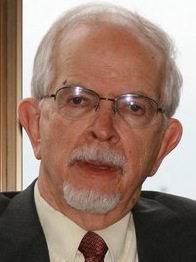Reprinted from Wallwritings

New York Times logo variation
(Image by (From Wikimedia) New York Times, Author: New York Times) Details Source DMCA
When the Democratic nominating convention meets in Philadelphia, July 25, the Platform Committee deliberations will indicate how much Hillary Clinton feels she needs Bernie Sanders' support.
Given the dire, looming alternative of a President Donald Trump, it is tempting to stop worrying about the Bern and embrace the New York Times' pro-Clinton narrative.
Not so fast. There is still ample time to support the party's nominee after the Bernie Sanders' forces make their Platform Committee stand.
Sanders has lain down a defiant marker by selecting three major pro-Palestinian Platform Committee members: Cornel West, James Zogby and Minnesota Congressman Keith Ellison, each of whom brings a unique background to this fight.
That trio sounds like one of those powerful law firm of West, Zogby and Ellison, a team you would not want to face in the courtroom of public opinion when the issue is the continuous torture of a battered client.
The Arab American Institution posted a video introducing five progressive activists appointed by Sanders to represent him on the Platform Committee.
Sanders will arrive in Philadelphia lacking enough delegates for the nomination. But thanks to his delegates, including his progressive "Dream Team" on the platform committee, he is in a strong position to shape the platform.
The New York Times, and the rest of the establishment mainline media, constantly remind voters that platforms do not matter. And to be sure, Democrats in Congress are not guided by the party platform.
Still, the media thrives on conflict and since this should be a lively platform committee conflict, those sessions will get attention.
First, we need to debunk portions of the mainstream media pro-Clinton narrative . The Washington Post report on Sanders and his platform committee choices, began this way:
"Sen. Bernie Sanders was given unprecedented say over the Democratic Party platform Monday in a move party leaders hope will soothe a bitter split with backers of the longshot challenger to Hillary Clinton -- and Sanders immediately used his new power to name a well-known advocate for Palestinian rights to help draft Democratic policy."
Sanders did not suddenly gain his "new power." A candidate still in the race for the nomination, with earned delegates, is entitled to an allocated percentage of committee seats.
Contrary to the Post, Sanders was not "given unprecedented say over the Democratic Party platform." He earned those committee seats by winning delegates.
He was not given seats to "sooth a bitter split," and he did not use "his new power" to name committee members. He did not get them as largess from the DNC. He got them the "old fashioned way." He earned them.
Party unity can wait until after the convention. Sanders should stay in this race as long as he and his delegates can impact the future of the party.
(Note: You can view every article as one long page if you sign up as an Advocate Member, or higher).





